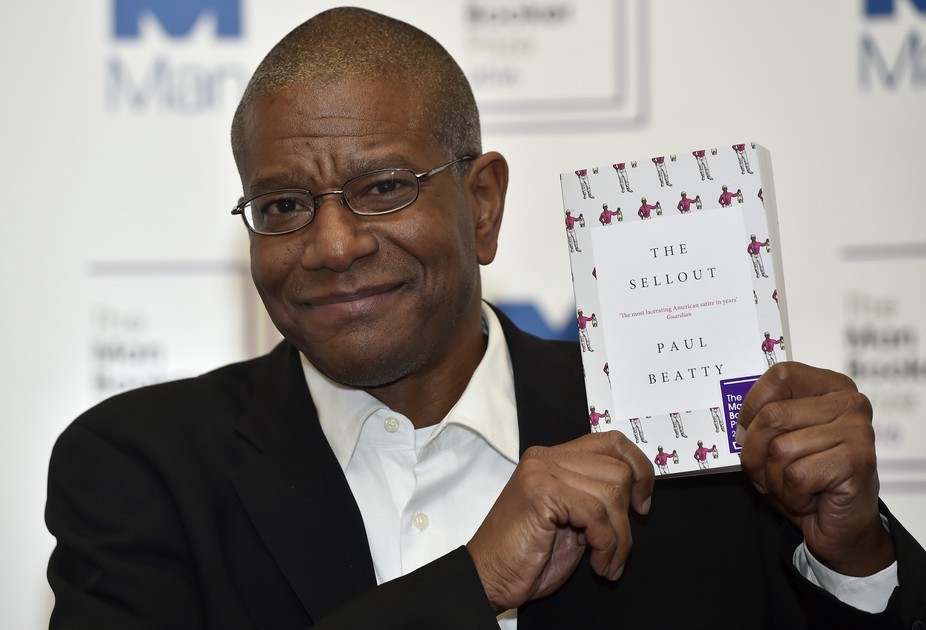news
The World Reacts to an American Winning the Booker

Paul Beatty’s The Sellout is the first American prizewinner

As you likely already know, yesterday Paul Beatty took home the 2016 Man Booker Prize (and $60,000) for The Sellout, making him the first American to win the award and, regardless of nationality, a rare comedic victor.
The controversy surrounding the 2014 decision to extend eligibility to all novels published in English in the UK (i.e. to include Americans, among others) hasn’t exactly dissipated over the past couple years. During the lead-up to last year’s announcement, The Telegraph published an article ominously headlined “American Dominance of Man Booker Prize longlist ‘confirms worst fears.’” The year before that, novelist Philp Hensher bemoaned American inclusion, commenting it would be like “an economic superpower exerting its own literary taste,” and Jim Crace provided the particularly British insight that something ineffable would be “lost” from the prize should Americans be added to the bill. All that is to say, Beatty’s victory has certainly aggravated some still healing wounds across the pond.
This year, the Irish Times posted a particularly scathing write-up that equates Beatty’s novel, the satiric tale of a narrator named ‘Me’ who, despite his African-American heritage, attempts to reinstate slavery and segregation in his “agrarian ghetto” outside Los Angeles, to “TV shows and sketches, or any number of screwball movie plots,” calling the choice “a bit of a sellout.” The same article also noted that “as darkening clouds of disbelief continue to gather over the US, anything can now happen.” Just a wonderful sentiment. To their credit, the Irish Times did consider Elizabeth Strout’s My Name is Lucy Barton, eliminated after the long-list, both a “great American novel,” and a worthy contender for the Booker Prize.
The Guardian took a more optimistic view, lauding Beatty and the Man Booker Committee in two separate pieces, titled “The Sellout Rips Up Rulebook For What Award-Winning Fiction Looks Like” and “How Paul Beatty’s Win Shakes the Jonathan Franzen-Loving US Literati.” The common theme running between the two is an appreciation for writing that is both difficult and unbound from expectation. However, a more tacit critique of a “polarized literary culture of the United States,” which author Michelle Dean perceives to be an undoubted truth, is also present. While this interpretation of the American literary scene is more than a tad reductive, and The Sellout certainly was not really that overlooked on its home turf, I can, counterarguments aside, endorse prizewinners who operate in a high literary register and critics who consider Jonathan Franzen to be an absolute blowhard without getting too up in arms.
Back stateside, the response has been more unequivocally joyous. For The New Republic, Alex Shephard wrote, “it’s hard to think of a better first American Man Booker winner than The Sellout, a profane, hilarious, and often uncomfortable look at America.” He also added the spirited aside, “if nothing else, the Man Booker Prize finally confirmed what has always been true…Americans write the best books.”
The New York Times, characteristically, took a more demure and balanced approach, acknowledging the controversy without positing a divisive stance. The Gray Lady did, however, include a lovely quote from Beatty on his novel:
“It was a hard book for me to write; I know it’s hard to read. I’m just trying to create space for myself. And hopefully that can create space for others.”
Congrats, Mr. Beatty. And well done.









